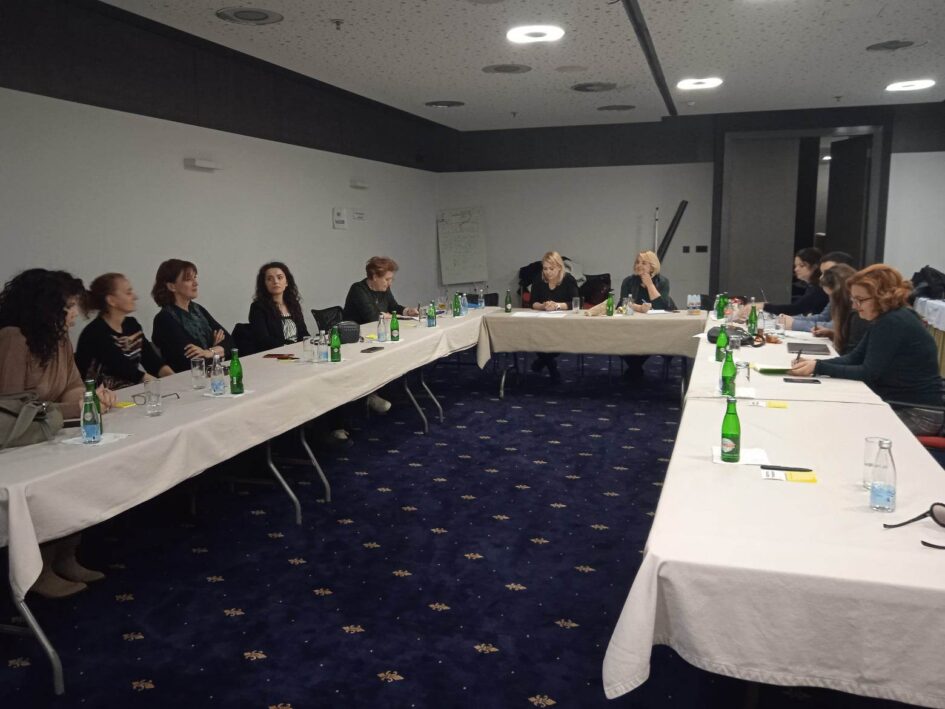
Focus group with female journalists in Sarajevo
Sarajevo, 18.03.2023. – Representatives of the Dutch organization Free Press Unlimited spent the past few days in Bosnia and Herzegovina where, in cooperation with the partner BH Journalists Association, they held focus groups with female journalists in Sarajevo, Mostar and Banja Luka, as part of a program aimed at improving the safety of female journalists around the world. We spoke with Jantine Van Herwijnen and Antonia Mednansky from Free Press Unlimited about the program and its main goals, as well as the problems and risks faced by female journalists in Bosnia and Herzegovina and other countries.

Women journalists face different types of attacks and threats in the world today and it’s important to pay attention to their needs, because we still live in a world dominated by men, say our interlocutors.
“In the last few years, within the FPU, we have developed comprehensive safety training for female journalists, which also includes psychological support, support when it comes to physical threats, digital and legal threats… We realized that the situation differs from country to country. The context is different depending on economic, political and many other factors in society”, says Jantine.
The pilot project started in 2021 in Bosnia and Herzegovina, when representatives of FPU spoke with female journalists from three cities in Bosnia and Herzegovina, wanting to get more information about their experiences as victims of online or offline violence, how safe they feel while doing their work inside the newsrooms, but also on work assignments outside the newsroom.

“These journalists face threats not only because of their work, but also because they are women. For example, in Kenya, where we also had focus groups with female journalists, we saw that there is a high degree of sexual harassment of female journalists inside and outside the newsrooms. In Thailand, we talked to many Myanmar women living in exile and the focus was on how safe you can do your job as a journalist when you are in exile. Our goal was to come to each of those countries and meet female journalists, gather them and talk directly about their problems in order to see what kind of risks they face”, says Antonia.
When it comes to the experiences of female journalists from Bosnia and Herzegovina, Jantine says that a significant number of cases of sexual harassment, which journalists are reluctant to talk about, have been registered, as well as the lack of mutual solidarity among female journalists. Also, the problem is the absence of support from editors and media owners, as well as their lack of interest in doing something to improve the safety of female journalists. Jantine believes that female journalists in Bosnia and Herzegovina need constant psychosocial support and encouragement in order to start talking about problems, pressures and threats and to report cases to competent institutions:
“What is characteristic for BiH is that the public is very critical of journalists, citizens don’t trust the media and journalists, and all this increases the risks for their work. Of course, there are also the poor economic conditions in which female journalists work, mistrust in judicial institutions when it comes to prosecuting attacks on them… Ethnic divisions make everything even more complicated and all of this seems very demotivating.”
The ultimate goal of the Free Press Unlimited program is to try to find possible solutions in cooperation with partner organizations in order to improve the safety of female journalists.
“One of such solutions is organizing support groups for female journalists, providing them with psychological support… Many female journalists point out that they often encounter online harassment, and it is also necessary to find better solutions in that digital sphere. After gathering experience through these focus groups, we plan to make recommendations for the media and governments, lobby for improved rights and safet, and establish a sustainable support system that will be easily accessible to all female journalists. The media outlets themselves should also adopt internal policies and safety protocols and respect them”, concluded Antonia and Jantine.



